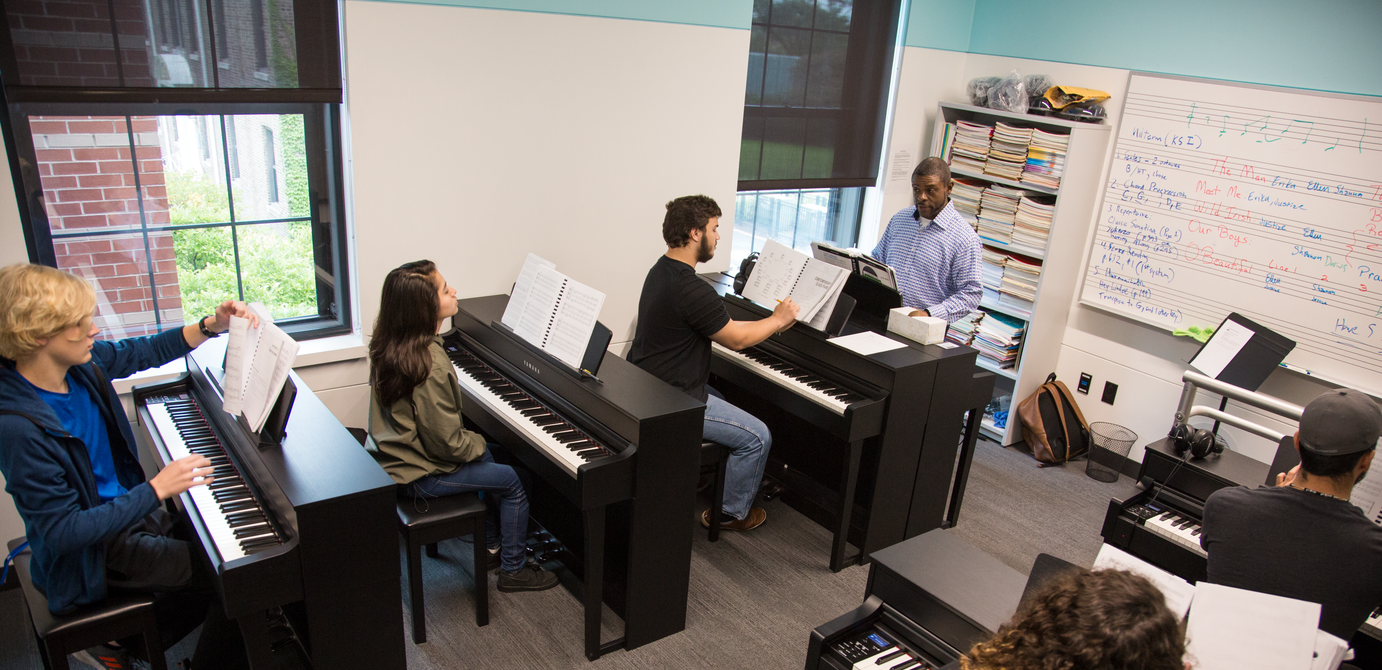Why Study Composition?
Tap into your musicality by becoming a composer. Music composition is more than just creating new music—you’ll gain skills as an arranger or songwriter and also learn how to effectively employ music technology. You’ll be prepared to apply for graduate programs or to begin your career in fields that focus on composition.
Performance Opportunities
- Chamber Ensembles
- Gospel Choir
- Instrumental and Vocal Ensembles
- Jazz
- Opera
- Worship Teams
- Fourth-Year Composition Recital
- Opportunity in weekly student recitals to perform compositions
Certificate in Music for Social Change and Human Values
The School of Music’s new eight-semester-hour undergraduate certificate program is available to all music majors. Learn to teach young students how to play stringed instruments in an orchestra setting, using El Sistema-inspired techniques.
Personal Attention
With most classes well under 20 students, you’ll be able to build relationships with faculty in the music program. You will work with your composition instructor to find opportunities to showcase your original compositions in a variety of settings.
Faculty Spotlight
Dr. Michael McBride is a Jeff Award-winning music director, internationally performed composer, performer, and educator.
Interesting Classes
Prepare for a career in composition by studying core music subjects such as music theory and music history, as well as develop your compositional style through courses including:
- Applied Composition
- Counterpoint
- Orchestration
- Songwriting
- Arranging
- Technology in Music
- Jazz/Pop Theory


